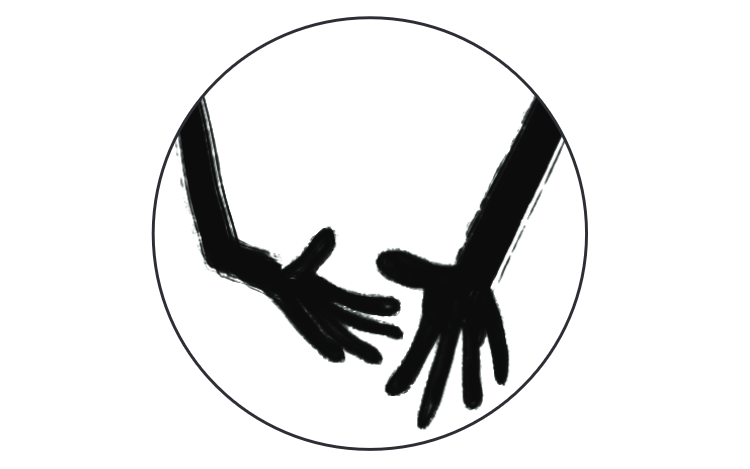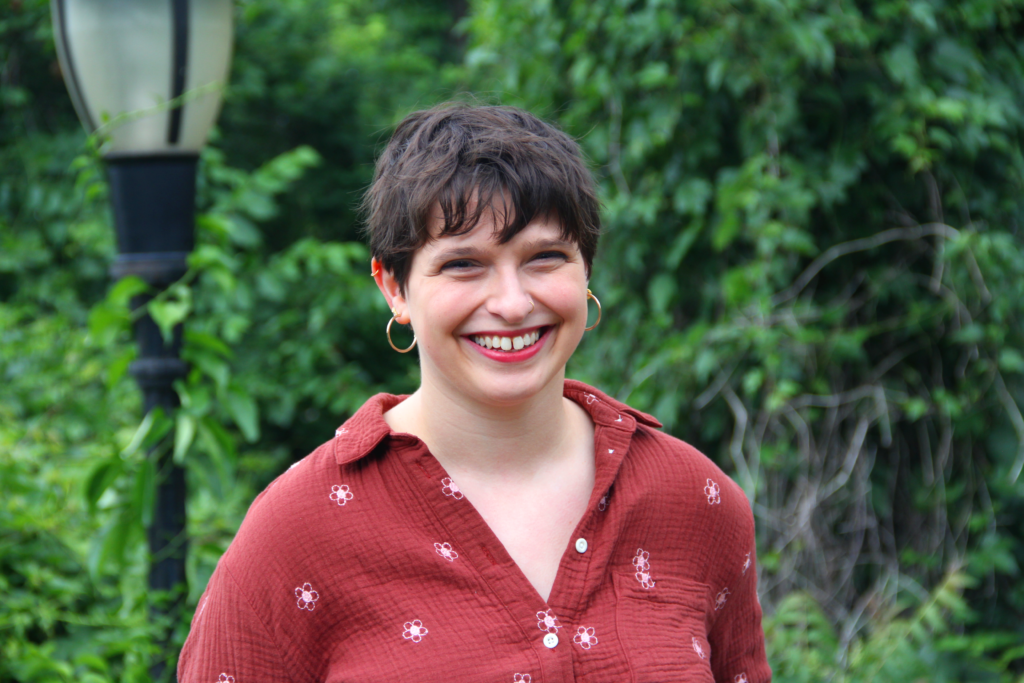The following is an excerpt from “Israel: Democracy, Race, Ethnicity, and More”
(Fragments #2).
by Rabbi Avigayil Halpern

It is not news that the religious right wing in Israel is violently anti-Palestinian. Nor is it news that this is regularly expressed in the teaching of settler rabbinic leaders. What might be disappointing to those on the political left is to learn that this is even true of settler rabbis who have reached out to those on the religious left.
Rabbi Eliezer Melamed, a Rosh Yeshiva and rabbi of the settlement Har Bracha, is an unusual figure. He has drawn attention for his comparatively liberal positions on Jewish issues for a Nationalist Haredi¹ rabbi — for example, his assertion that “a female soldier who contributes to the defense of the state and does so in the name of heaven – she is performing a mitzvah.”² Despite this, he regularly expresses racist and dangerous ideas about military and civilian violence toward Palestinians, including advocating the murder of Palestinian civilians back in 2014:
The correct moral position is that in time of war, the enemy is hit together with the civilians beside him. War is not created by individuals… the public that brought Hamas to power with a huge majority bears full responsibility for its actions, and especially since they are so jubilant about every one of our soldiers who is killed or kidnapped.³
Melamed is best known for his widely utilized work, Peninei Halakhah. Rabbi Elli Fischer, a translator of Melamed’s work, characterizes Peninei Halakhah as “a practical guide to the halachot of contemporary Jewish life. They are written in clear language and with theoretical and ideological introductions, into which the halachic details are then assimilated.”⁴
Over the past several years, Melamed has positioned himself as an unexpected ally of liberal Jews. Melamed has advocated for the right of Reform and Conservative Jews to pray at the “egalitarian section” of the Western Wall and has met with many liberal Jewish leaders, to condemnation from the religious right and praise from liberal Jews. Rakefet Ginsburg, the CEO of the Masorti Movement in Israel, described a 2021 meeting with Melamed in glowing terms:
We both talked about our public love of Israel, Klal Yisrael. Our mutual bonds are a candle to its feet. None of us has deceived ourselves that all of these come easily or with full agreement. But just before I left we felt we had found friends (not to mention partners) to increase the light of this candle.⁵
The condemnations from Melamed’s own conservative, national-religious camp for his attempts at pluralism have been particularly impactful because of the popularity of Peninei Halakhah. Fischer offers context for the reception of the work:
[This is] the standard textbook for the study of halachah in Religious Zionist high schools, and there is even a popular series of Peninei Halachah for children, complete with illustrations. To date, about a million individual volumes of Peninei Halachah have been sold — in addition to its availability as an app, on the website of Yeshivat Har Bracha, and on Sefaria. In addition to Hebrew, volumes are available in English, Spanish, French, and Russian.
Melamed’s prominence on the national-religious scene has contributed to the excitement among liberal Jewish leaders around his willingness to see liberal Jews as partners. It has become a truism in non-Orthodox movements that interdenominational dialogue is valuable, and Melamed is a shining example of Orthodox leadership willing to participate. In a period of such turmoil over Jewish identity and the Israeli state, many non-Orthodox Jewish leaders have related to Melamed with the same glowing gratitude that Ginsburg expressed after her meeting.
Anyone on the Jewish left — religiously or politically, and particularly at their overlap — has likely experienced the odd sense of relief when a leader to the right takes a risk with their own reputation to engage in conversation. This gratitude can make us reluctant to criticize these dialogue partners, especially in contexts where those to the right are more powerful, and we experience their willingness to talk as a legitimizing move for us.
Especially in Israel, where national-religious rabbis are aligned with the massive power of the state, it is easy to slip into a posture of accommodation that resists offering criticism. But we risk forgetting that by participating in these dialogues, non-Orthodox and liberal Jews, too, are offering legitimization. Especially when paired with the relative communal power of the Reform and Conservative movements in the United States, non-Orthodox leaders offer an implicit imprimatur to the right-wing Orthodox rabbinic figures they dialogue with. And this is not a morally neutral choice.
Given Melamed’s views on Palestinians, it should not be surprising to learn that there may perhaps be an ulterior motive to Melamed’s meetings with liberal Jews. When united in their views on Zionism, these other Jewish groups help legitimize Melamed’s nationalist project.
In one of his weekly articles in the right-wing newspaper Arutz Sheva, Melamed directly addresses his goals in opening dialogue. He writes,
I recognize the reality that there are Reform Jews who support those who hate the State of Israel, and specifically because of this I appreciate and love even more those who immigrate to the Land and frequent the Western Wall. And in any case, when even those who are very distant from us nevertheless want to share in brotherhood with us, it is a mitzvah to extend a hand to them and hope that they extend a hand to us in return.⁶
The careful reader will notice that Melamed’s desire for a mutual embrace with Reform Jews relies on a specific version of Zionism. It is because these particular people reject “those who hate the State of Israel” and instead make aliyah and value the centrality of the Western Wall. Melamed’s approach to this solidarity between Zionist Jews of all religious orientations is given clearer voice in another of his weekly columns, published in English translation on his yeshiva’s website, entitled “The Answer to Our Enemies – Birth and Aliyah.” In an attempt to answer the question “why are righteous Jews killed,” Melamed articulates his Jewish supremacist vision:
There are not enough Jews in Eretz Yisrael in general, and in Judea and Samaria, in particular… In other words, as long as there are not enough Jews to settle the entire land, its’ [sic] length and breadth, until there are no desolate places remaining, God sees to it that in a natural way that enemies will remain in the land. As the Torah says: ‘I will not drive them away from before you in one year, lest the land become desolate and the beasts of the field outnumber you. I will drive them out from before you little by little, until you have increased and can occupy the land’ (Exodus 23:27-31). After Am Yisrael increases and becomes stronger, physically and spiritually — the enemies will leave. Conceivably, some of them will join us, and thus, turn from enemies to allies. And there will probably be those who will fight and be defeated, and others who will prefer to emigrate to another country.⁷
In short, Melamed’s vision of a land full of Jews is one in which some “enemies” (that is, Palestinians) will be killed and some will “prefer to emigrate to another country.”
Later on in this article, he makes clear the connection between his exterminationist vision of Jewish domination and his dialogue with liberal Jews. He writes, echoing his intellectual ancestor Rav Kook, that “we find in modern times, that partnership in the settlement of the Land created a union between all the factions — religious and secular, left and right, Sephardim and Ashkenazim, Hasidim and Mitnagdim. Even the few Reform Jews who supported the settlement of the Land were united with all the Zionists, including the religious.”
Melamed’s agenda here is clear. Interdenominational connections are not about enriching relationships; they are about uniting to drive out Palestinians from the Land by force.
In addition to his bridge-building with liberal Jews, Melamed has also come under fire from those on the right for some of his more permissive halakhic rulings. These rulings have been embraced by left-leaning Orthodox and other halachic Jews. (I will focus here on kashrut and niddah — laws about sex.)
Among Melamed’s rulings are attempts to make it possible for Jews who observe stricter standards of kashrut to eat in the homes of those with different practices⁸ and the suggestion that stainless steel may have a different halakhic status for kashrut that would offer more leniency (though Melamed does back off of this particular theory when it comes to application, perhaps out of a worry of going too far in the direction of permitting Jews to eat anywhere). In his section on kashrut in Peninei Halakhah, Melamed explicitly frames a leniency around permitting wine that has been touched by Jews who are not Shabbat-observant as being “in order to prevent offense or injury to the brotherhood that must exist between Jews.”⁹
These leniencies must be read througwh Melamed’s focus on Jewish unity as an ethnonationalist project. What is the value of breaking bread together? It builds connections. In his own words, eating is not just eating; it is a means by which “we can fulfill our purpose of establishing God’s kingship in the world” (quoting a line from the prayer Aleinu, “letaken olam b’malchut Shaddai.”)
Further, Melamed was criticized for his lenient niddah opinions in one of the same letters in which he was attacked by critics from the right for dialoguing with liberal Jews.¹⁰ Stringency in niddah, of course, has often harmed those women and other people who observe the set of Jewish laws around sex and menstruation, policing their bodies and causing potentially unnecessary problems with fertility.
Among Melamed’s landmark controversial opinions, both in content and for his willingness to write it down for the public to access, is permission for women who have frequent menstrual spotting to wear colored underwear, rather than white underwear, during the period of niddah observance when that is typically required.¹¹ This workaround enables women to end their menstrual separation from their partners earlier and resume their sex lives.
On one hand, this is a quasi-feminist position, offering a reading of halakhah that offers women (slightly) more agency and less limitation. However, remember that Melamed is committed to a Jewish majoritarian goal, with one important means being birth.
Reading Melamed’s ruling through the lens of his Jewish supremacism ought to make us skeptical of the progressivism of this leniency. After all, enabling more married straight couples to have sex is a key tool for “Am Yisrael [to] increase and become stronger.” Is it feminist, or is it just fascist?
The thrill of recognition from Orthodox leaders and the utility of lenient rulings should not lead us to ignore the ways in which liberal Jews are being co-opted by (generously) or joining in with (less generously) the Jewish supremacist project of right-wing Zionism through our engagement — directly and through his Torah — with Melamed. (I do not, here, offer an opinion on use of his sefer for study and halakhic decision-making.) Dialogue is not merely dialogue; it can launder views that we abhor into the liberal Jewish mainstream, both in the United States and Israel.
Our task, for those of us who see halakhah as the central well of Jewish wisdom and who value connections between different parts of the Jewish community, is to use Torah and our connections with one another to build a world where God reigns — but not as Melamed imagines it. We must pursue Torah and relationships that lead us toward justice, toward liberation, and toward a redeemed future.


¹ Nationalist Haredi translates the Hebrew “Haredi Dati Leumi,” which is to say Jews who practice Judaism according to ultra-Orthodox standards but are also highly nationalistic and supportive of the state.
² https://www.israelhayom.com/2020/09/25/female-soldiers-who-contribute-to-israels-defense-are-performing-a-mitzvah/
³ https://www.israelnationalnews.com/news/343992, also known as Arutz Sheva [Channel 7].
⁴ https://mizrachi.org/hamizrachi/peninei-halachah-a-religious-zionist-code-of-jewish-law/
⁵ https://masorti.org/meeting-minds-conservative-ultra-orthodox/
⁶ https:///www.inn.co.il/news/501141 [Translation from Hebrew my own]
⁷ https://en.yhb.org.il/revivim1053/
⁸ https://en.yhb.org.il/relying-on-the-kashrut-of-traditional-jews/
⁹ https://www.sefaria.org/Peninei_Halakhah%2C_Kashrut.29.13.6?lang=bi
¹⁰ https://www.hakolhayehudi.co.il/item/Jewish_identity/
¹¹ Peninei Halakhah, Family Purity 4:9. In traditional niddah practice, a woman is required to wear white underwear and perform daily vaginal checks for seven full days following the end of her period. After these “seven clean days,” she immerses in the mikvah and is once again permitted to have intimate physical touch with her husband. To allow a woman to wear colored underwear during these seven days increases the likelihood that she will not see halachically problematic bleeding, which would delay her mikvah immersion.

RABBI AVIGAYIL HALPERN (she/her) is an educator and writer whose work focuses on feminist and queer Torah. She has taught in Torah institutions and synagogues nationally and internationally, and holds rabbinic ordination from the Hadar Institute and a BA from Yale. She has been the Cooperberg-Rittmaster Pastoral and Educational Intern at Congregation Beit Simchat Torah, and was one of the New York Jewish Week’s “36 Under 36” in 2021.
